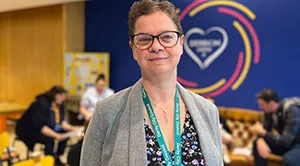 In a recently published report, Derby City Council explores the implications of gambling throughout the city. As the publication from the local government office explains, gambling advertising and marketing have become omnipresent, reaching an extensive audience, including vulnerable individuals and children. The accelerated expansion of remote gambling has also led to increased opportunities to gamble.
In a recently published report, Derby City Council explores the implications of gambling throughout the city. As the publication from the local government office explains, gambling advertising and marketing have become omnipresent, reaching an extensive audience, including vulnerable individuals and children. The accelerated expansion of remote gambling has also led to increased opportunities to gamble.
As the report states, of all forms of gambling, online gambling is associated with the highest risk of developing problem gambling.
The report’s summary further explains that despite gambling being illegal for individuals aged below 18, it “has become increasingly easy to access, normalised within society, and promoted to a wide audience, including children.” According to national estimations, nearly 30,000 young people are struggling with problem gambling in the UK.
Gambling can negatively impact an individual’s life, health, and well-being, just like alcohol and tobacco, the report explains. Problem gambling can jeopardise an individual’s financial and personal life and can even lead to suicide. The council’s report states that for every problem gambler, “a further six to ten people (for example, family members, friends, or colleagues) are also directly affected.”
The report’s findings point to 83.3% of Derby residents suffering from anxiety and stress as a consequence of gambling, 73.3% grappling with financial difficulties, 60% having family or relationship difficulties, 60% suffering from depression, and 36.7% feeling isolated.
Therefore, the Derby City government office has taken on the task of exploring how to bring gambling-related harms in the city to a minimum.
Entitled Gambling with our Health, the report draws on national and local data. The officials involved in the report have talked to an individual whose life has been turned upside down due to problem gambling. Additionally, young people from the city have shared their views on gambling.
Derby City Council’s Director of Public Health Comments on the Report and Suggests Further Recommendations for Action
 Dr Robyn Dewis, Derby City Council’s Director of Public Health, commented on the recently released report, stressing the importance of raising awareness about problem gambling. She shared her concerns about gambling’s negative impact on the local community and highlighted the role of society in causing gambling-related harm.
Dr Robyn Dewis, Derby City Council’s Director of Public Health, commented on the recently released report, stressing the importance of raising awareness about problem gambling. She shared her concerns about gambling’s negative impact on the local community and highlighted the role of society in causing gambling-related harm.
“When we think about health problems, we might think about cancer, heart diseases or the causes of health problems, such as alcohol and tobacco. However, gambling should also be considered as a potential source of serious harm to our health.”
According to estimations, Derby City citizens collectively spend nearly £314,000 on gambling, and 514 individuals qualify as problem gamblers. While gambling can affect anyone, financially disadvantaged people are at greater risk. Even worse, gambling-related problems can occur along with other issues, such as poor mental health. Dr Dewis further explained that while gambling harm could very quickly ruin an individual’s life, the recovery process could be rather long and challenging.
The public health official told the story of a recovered gambling addict who shared his own experience with gambling. He engaged in gambling at an early age, eventually leading to a point in his life when he attempted suicide. Aside from the financial toll problem gambling had on his life, the man spoke about the mental implications: “My addiction took lots of money from me but, even more damagingly, it took my self-confidence and self-respect, lots of relationships and very nearly my life…” Derby City Council has published a summary video of the report on its website, along with the interview of the former problem gambler.
Applauded by the Association of Directors of Public Health, the report also suggested further recommendations for action. These include raising awareness of the need for early education on problem gambling, available support channels, reducing the avenues to gambling of vulnerable individuals, as well as using research data to better understand gambling locally.
- Author


